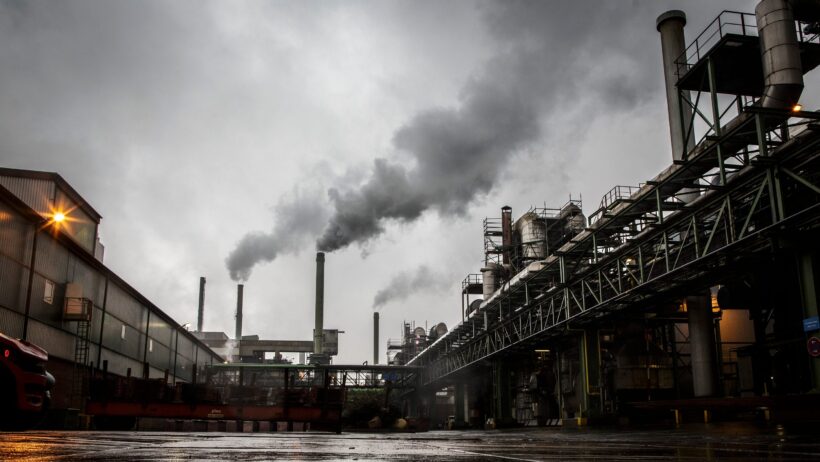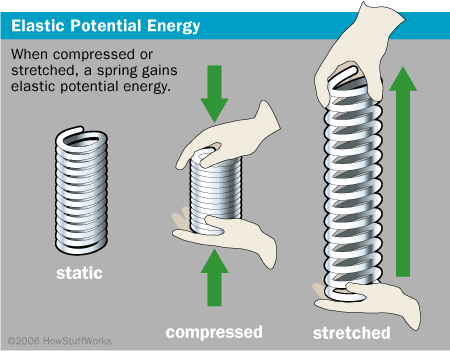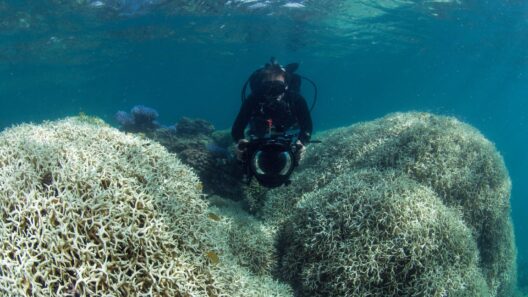In recent years, discussions surrounding climate change have predominantly centered around global warming, with its far-reaching implications for our planet’s ecosystems and weather patterns. However, an intriguing phenomenon has emerged within this discourse—the global cooling paradox—posing a captivating question: can the pervasive rise in global temperatures precipitate extreme cold events? This query, though seemingly contradictory, invites us to unravel the complex interplay of atmospheric dynamics, ocean currents, and climatic systems.
To comprehend this paradox, it is crucial to first grasp the fundamentals of how global warming influences weather patterns. As greenhouse gases accumulate in the Earth’s atmosphere, they create a warming effect, raising global temperatures and altering the latent energy within the Earth’s systems. This altered energy distribution can engender a spectrum of climatic responses, some of which may lead to unexpected cold spells, particularly in regions traditionally characterized by temperate conditions.
One critical aspect of this interaction is the Arctic amplification phenomenon. As the Arctic region warms at a rate substantially faster than the rest of the planet, the melting of polar ice caps influences atmospheric circulation patterns. Specifically, the temperature differential between the equator and the poles decreases, resulting in a weakened polar vortex. This weakening has been correlated with the displacement of cold Arctic air southward, leading to sporadic, yet intense, cold outbreaks in mid-latitude regions—think of the winter of 2021 in the United States, when frigid weather descended upon states not typically accustomed to such extremes.
Moreover, the disruption of oceanic currents, specifically the Atlantic Meridional Overturning Circulation (AMOC), warrants attention. This vital system, which regulates the transfer of warm and cold water between the tropics and the North Atlantic, is further influenced by the influx of freshwater from melting Greenland ice sheets. The potential slowdown of the AMOC could lead to significant climatic shifts, including severe cooling in parts of Europe and North America, counterbalancing the overarching trend of global warming. Could it be that, amidst all this rising heat, some regions may find themselves grappling with unprecedented chill?
Consider the ramifications of such events. The immediate impacts of extreme cold can be hazardous. For instance, the abrupt onset of frigid temperatures can disrupt agriculture, affect energy consumption patterns, and pose health risks to vulnerable populations. The icy grip of winter storms can exacerbate socioeconomic inequalities, revealing how climate change is not solely an environmental issue but also a profound social justice challenge. The specter of extreme cold hanging over regions may compel policymakers and communities to adapt and prepare for these potentially severe weather swings.
Yet, the intertwined relationship between global warming and extreme cold presents a formidable challenge for climate models and predictions. Traditional climate projections often exhibit biases, which can lead to miscalculations regarding the frequency and intensity of cold weather events. As scientists strive to refine these models, the unpredictability inherent in climate systems underscores the need for a holistic approach that accommodates not just average temperature increases but also these erratic fluctuations.
This nuanced understanding is essential for any meaningful discourse on climate mitigation strategies. A singular focus on reducing carbon emissions may not suffice if we do not also account for the potential of abrupt climate anomalies. This leads to a pressing question for environmental activists and policymakers alike: How do we prepare for a future that could feature not only a warming planet but also a bizarre patchwork of extreme weather phenomena, including the uncanny return of severe winter events?
In navigating this complex landscape, it becomes apparent that adaptive governance is paramount. Incorporating data from diverse climatic models, alongside real-time monitoring of atmospheric and oceanic conditions, can facilitate more accurate forecasting and responsive measures. Communities must be equipped not only with strategies to combat heat but also with contingency plans to address the eventuality of severe cold snaps. Enhancing infrastructure to withstand extreme weather, improving energy efficiency, and promoting sustainable agricultural practices could contribute to fortifying society against the adversities of climate variability.
Ultimately, the interplay between global warming and the emergence of extreme cold events serves as a poignant reminder of the intricate and multifaceted nature of our planet’s climate system. As we grapple with this global cooling paradox, acknowledging the paradoxical relationship between rising temperatures and the potential for extreme cold offers valuable insights. It underscores the necessity for a comprehensive and integrated perspective on climate change, one that embraces both the alarming trends of warming and the unforeseen challenges posed by shifting weather patterns.
In conclusion, the prospect that global warming could lead to bouts of extreme cold presents a playful yet profound challenge to our understanding of climate dynamics. As we confront the reality of climate change, let us engage in critical discourse and unwavering action, striving not only to mitigate the causes of global warming but also to adapt to the anomalies it may entail. The resilience of our ecosystems, our communities, and our future generations may very well hinge on our ability to respond wisely to the imminent challenges posed by a warming world.








